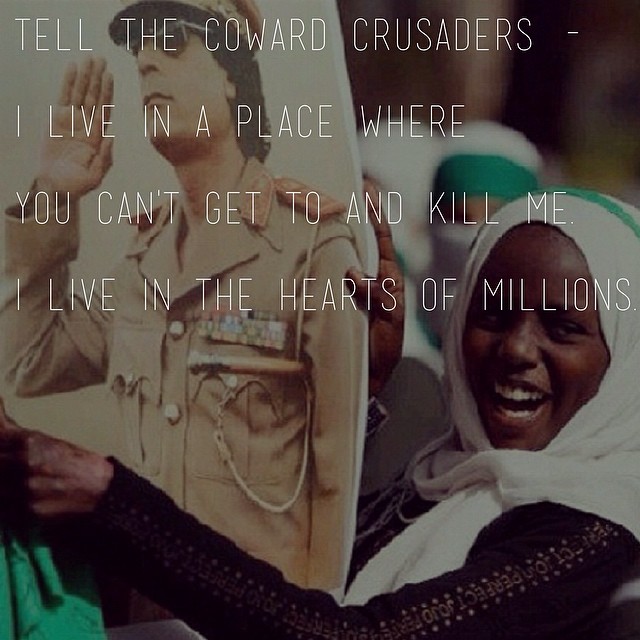13 Hours: What Was Left Out

When the movie ended, I said to myself, "Had it not been a true story, it'd still be an excellent movie." Same sentiments I had about Lone Survivor, in fact. Notwithstanding the occupation and the terrorism celebrated in each film, both movies were very well put together. The acting, the camera work, the direction were all beyond reproach, in my opinion. And for the subject matter to be one of history's momentous events that viewers can learn from was just icing on the cake. That having been said, I think it's worth mentioning what the producers of 13 Hours left out of the movie.
It opens with British and French airstrikes on Libya during October 2011. What they left out was that the Libyan Arab Jamahiriya had been under US/NATO bombardment for a full seven months prior to that. American bombs destroyed thousands of lives, homes, infrastructure and even entire cities! Make no mistake, the airstrikes that enabled Muammar Gaddafi’s capture and execution were definitely not the first. NATO’s terror attacks on Libya began in March, not in October.
On that note, the film prominently showed Libyans as being dissatisfied with Gaddafi. Not surprising, considering that nearly every single Western media platform promotes the same anti-Gaddafi narrative. What they left out was that the majority of Libyans supported their Brother Leader, as evidenced by the Libyan government's ability to withstand months and months of assault by the most formidable military alliance in human history. Despite Western aggression – to include an insurgent, foreign-backed terrorist army – many people in Libya stood tall in defense in the Jamahiriya and still do.
By far, the most glaring omission was the reason why. Why were they there? What was a United States ambassador [and a host of other US nationals] doing in Benghazi? Depicted in 13 Hours was a group of noble Americans providing stability, building democracy and blah, blah, blah. However, the honest answer is weapons. The ambassador was transferring military armament from the Libyan theatre to the Syrian theatre. The same blueprint that had just been used to destroy one secular nation was now being used to destroy another. It goes like this: propagandize about falsified government atrocities, then train, equip and insert foreign mercenaries, then watch the devastation unfold. The ambassador's work in Libya was an integral piece of that puzzle.
To be clear, anti-imperialist perspective is about the last thing one should expect from any Hollywood production. Though, politics aside, this was an excellent movie. I just wish, for humanity’s sake, that it wasn't a true story.
Peace to the Jamahiriya.
